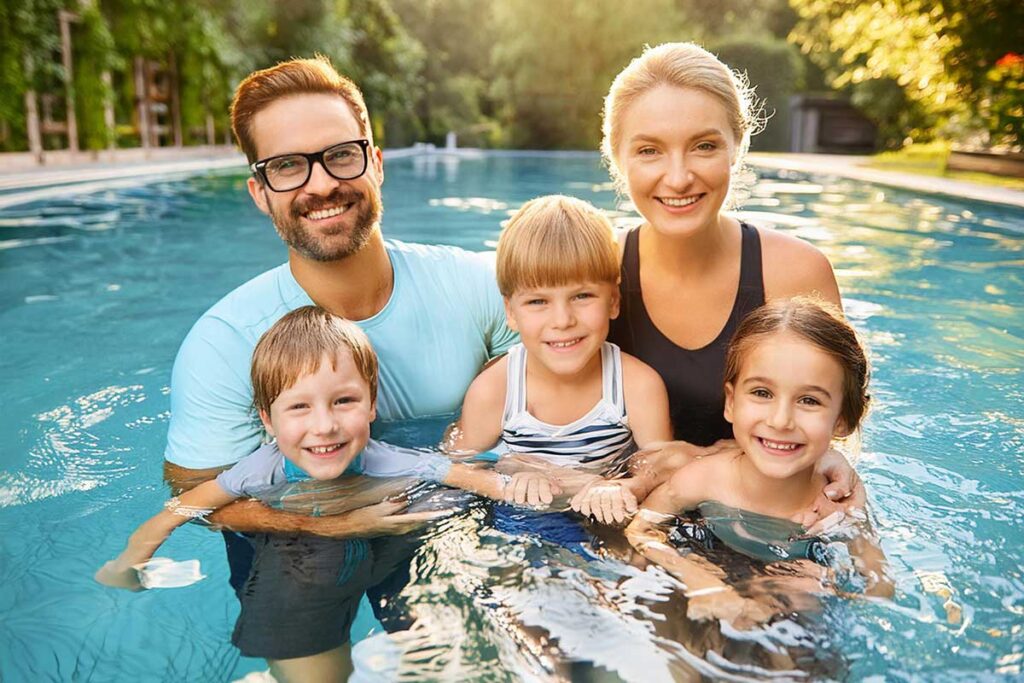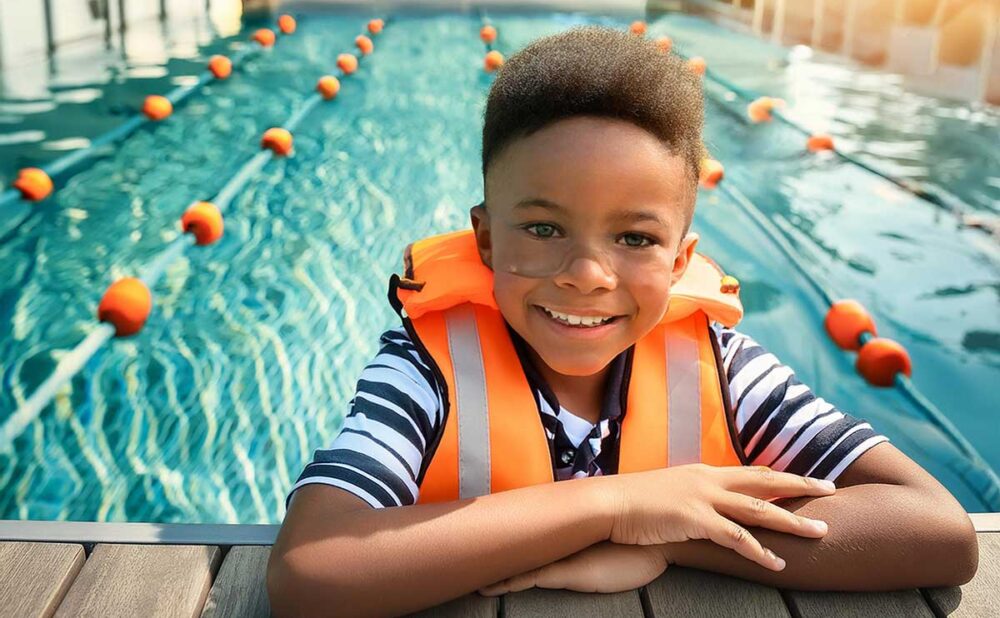Dive Into Safety: Essential Water and Pool Guidelines for Georgia Parents
As temperatures rise and days grow longer, families across Atlanta are eager to spend time outdoors, particularly around water. Whether it’s a backyard pool, a local community aquatic center, or one of the many lakes and rivers in the area, water activities are a staple of summer fun. However, with this enjoyment comes the critical responsibility of ensuring the safety of our children and loved ones. Water-related accidents can happen in the blink of an eye and often have devastating consequences.
This article aims to equip Atlanta parents with essential knowledge and practical tips on water and pool safety. By understanding the risks and implementing preventive measures, we can create a safer environment for our children to swim, splash, and play. From the importance of constant supervision to the benefits of teaching kids how to swim, and from installing effective barriers around pools to preparing for emergencies, we will cover a comprehensive range of topics to help you keep your family safe.
Join us as we delve into these crucial aspects of water and pool safety, ensuring that your summer is filled with joy and peace of mind.
Understanding Water Safety
Water safety is a critical concern for parents in Atlanta, especially during the warmer months when families flock to pools, lakes, and other water bodies to escape the heat. Understanding water safety involves more than just knowing how to swim; it encompasses a range of practices and precautions designed to prevent accidents and ensure a safe and enjoyable experience for everyone involved.
Importance of Supervision
The cornerstone of water safety is vigilant supervision. Children, regardless of their swimming abilities, should never be left unattended near water. Drowning can occur quickly and quietly, often without the splashing and screaming typically associated with water distress. Parents and guardians must maintain constant visual contact with their children and stay within arm’s reach when they are in or near water. Designating a “water watcher” during gatherings can help ensure that at least one adult is always responsible for monitoring the children.
Teaching Kids to Swim
Teaching kids to swim is another essential aspect of water safety. Swimming lessons can significantly reduce the risk of drowning and give children the confidence to enjoy water activities safely. The American Academy of Pediatrics (AAP) recommends that children start formal swimming lessons at the age of one. However, it’s important for parents to assess their child’s readiness and comfort level. Many local organizations, such as the YMCA and Red Cross, offer swimming classes tailored to various age groups and skill levels. By equipping children with the ability to swim, parents provide them with a fundamental life skill that can enhance their safety and enjoyment of water activities.
Recognizing Water Hazards
Understanding and recognizing water hazards is crucial for preventing accidents. Bodies of water, whether natural or man-made, can present various dangers. For instance, rip currents, sudden drop-offs, and underwater obstacles are common hazards in lakes and oceans. Even in swimming pools, slippery surfaces, drains, and deep ends can pose risks. Parents should educate themselves and their children about these potential dangers and how to avoid them. Additionally, it’s important to be aware of weather conditions and avoid swimming during storms or in water that appears unsafe.
By prioritizing supervision, teaching children to swim, and recognizing water hazards, parents can create a safer environment for their families. Understanding water safety is the first step in preventing accidents and ensuring that time spent in and around water is both fun and secure.

Pool Safety Measures
Ensuring that your pool area is safe is critical for preventing accidents and ensuring a fun, relaxing environment for everyone. Implementing comprehensive pool safety measures can significantly reduce the risks associated with having a pool at home. Here are some essential strategies:
Fencing and Barriers
One of the most effective ways to prevent unsupervised access to the pool is by installing physical barriers. A sturdy fence, at least four feet high, should surround the pool on all sides. The fence should have a self-closing, self-latching gate that opens outward, away from the pool area. Ensure that the latch is out of reach of small children. If your house forms one side of the barrier, make sure doors and windows that offer direct access to the pool are equipped with alarms.
Pool Alarms and Covers
Technology can play a vital role in enhancing pool safety. Pool alarms can notify you if someone enters the pool area unexpectedly. There are several types of alarms available, including surface wave sensors, subsurface disturbance detectors, and wearable alarms for children. Additionally, a secure pool cover can prevent accidental falls into the water. Make sure the cover is sturdy enough to support the weight of a child and is securely fastened when not in use.
Regular Maintenance and Inspections
Keeping your pool in good condition is not only essential for hygiene but also for safety. Regular maintenance includes checking the chemical levels to ensure the water is safe for swimming, inspecting drains, and ensuring that the pump and filter are functioning correctly. Additionally, pool equipment such as ladders and diving boards should be regularly inspected for wear and tear. Perform routine checks for any potential hazards, such as broken tiles or sharp edges, that could cause injury.
By incorporating these pool safety measures, Atlanta parents can create a secure swimming environment for their families and pool safely. Taking these precautions can help mitigate risks and ensure that everyone can enjoy the water safely.
Emergency Preparedness
When it comes to water and pool safety, being prepared for emergencies can be the difference between a close call and a tragic incident. As parents in Atlanta, ensuring that you are equipped with the knowledge and tools to handle emergencies is a crucial component of overall safety. Here are some essential aspects to consider:
CPR and First Aid Training
One of the most vital steps in emergency preparedness is obtaining CPR and first aid training. These life-saving skills can empower you to act swiftly and effectively in the event of an accident. Many local organizations, such as the American Red Cross and community centers in Atlanta, offer CPR and first aid courses. These courses typically cover:
- Cardiopulmonary Resuscitation (CPR). Learning the proper techniques for performing CPR on infants, children, and adults.
- First Aid. Understanding how to treat common injuries such as cuts, burns, and fractures that can occur around the pool.
- Rescue Breathing. Techniques for providing oxygen to someone who isn’t breathing.
- Automated External Defibrillator (AED) Use. How to use an AED, which can be crucial in cases of cardiac arrest.
Taking the time to become certified can provide peace of mind and ensure you’re prepared to take immediate action if needed.
Emergency Contact Information
Having accessible emergency contact information is another key element of preparedness. Ensure that all family members and caregivers know where to find this information and understand its importance. Your emergency contact list should include:
- Local Emergency Services. Dialing 911 should be second nature, but it’s also helpful to have direct numbers for local police, fire, and medical services.
- Poison Control Center. Keep the national Poison Help hotline (1-800-222-1222) handy, especially if there are chemicals used for pool maintenance.
- Family Contacts. A list of phone numbers for parents, guardians, and close relatives who can be reached in an emergency.
- Medical Information. Details about any medical conditions, allergies, or medications that family members might have, which can be crucial for first responders.
Consider keeping this information in multiple locations around your home, such as near the pool, in the kitchen, and stored in mobile phones.
Creating a Safety Plan
A comprehensive safety plan tailored to your specific pool and family needs is essential. This plan should outline the steps to take in various emergency scenarios and ensure everyone in the household is familiar with it. Key components of a safety plan include:
- Emergency Drills. Regularly practice drills for different scenarios, such as someone falling into the pool, an injury, or an unconscious swimmer. This helps ensure that everyone knows what to do and can act quickly under pressure.
- Designated Emergency Roles. Assign specific roles to family members during an emergency, such as who will call 911, who will perform CPR, and who will guide emergency responders to the location.
- Clear Instructions. Post clear, written instructions near the pool area for performing CPR, using an AED, and handling other emergency procedures.
- Safety Equipment. Ensure that safety equipment such as life rings, reaching poles, and first aid kits are easily accessible and well-maintained.
By focusing on emergency preparedness, Atlanta parents can significantly enhance the safety of their children around water. While prevention is always the best strategy, being ready to respond effectively in an emergency is a critical part of keeping your family safe.
Conclusion
Ensuring the safety of your children around water and pools is a critical responsibility for Atlanta parents. By understanding the essential principles of water safety, implementing robust pool safety measures, and preparing for emergencies, you can significantly reduce the risks associated with water activities. Supervision is paramount; never underestimate the importance of keeping a vigilant eye on your children whenever they are near water. Equally important is equipping your kids with swimming skills and educating them about potential water hazards.
Investing in proper pool fencing, alarms, and covers, along with regular maintenance and inspections, can create a safer environment for your family and prevent accidents before they occur. Moreover, being prepared for emergencies through CPR and first aid training, having accessible emergency contact information, and crafting a detailed safety plan can make a life-saving difference in critical situations.
Remember, water and pool safety is an ongoing commitment. It demands continuous attention, education, and action. By integrating these safety practices into your daily routine, you not only protect your children but also foster a culture of safety and awareness that can benefit the entire community. Let’s make water safety a priority and ensure that our children can enjoy the fun and relaxation of swimming in the safest possible way.
If you or a family member has been injured in a swimming accident due to the negligence of another, the experienced injury lawyers at The Jewkes Firm are here to guide you through the next steps. Contact us today at (770) 771-5130 or fill out the form for a FREE consultation.




